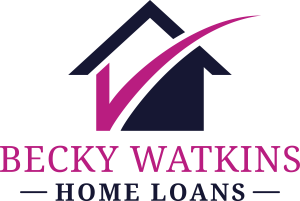Navigating Your First Mortgage: FHA vs. Conventional Loans
Stepping into the world of homeownership is an exciting journey, and understanding your mortgage options is a crucial part of that adventure. For first-time homebuyers, navigating through the myriad of loan choices can be daunting.
Two primary mortgage types stand out: Federal Housing Administration (FHA) loans and Conventional loans. Each offers unique benefits and requirements, making it essential for potential homeowners to grasp their differences.
This guide aims to demystify these options, providing a clear comparison between FHA and Conventional loans. We’ll delve into their definitions, explore their pros and cons, and examine key factors like down payment requirements, credit score implications, and mortgage insurance.
Understanding these differences is not just about making an informed choice; it’s about finding a loan that aligns perfectly with your financial situation and homeownership goals. Whether you're eyeing a cozy starter home in Colorado or a sunny abode in New Mexico, this article will help you navigate your first mortgage with confidence.
The Differences Between FHA and Conventional Loans
When choosing between an FHA and a Conventional home loan, understanding their key differences is essential for making an informed decision that suits your financial situation. One of the primary distinctions lies in the backing of the loans.
FHA loans are insured by the Federal Housing Administration, a government entity, which provides a safety net to lenders in case of a borrower default. This government backing allows for more lenient qualification criteria, making FHA loans particularly accessible to first-time homebuyers and those with lower credit scores.
Conventional loans, in contrast, are not government-insured and are typically offered by private lenders. This lack of government insurance translates to stricter qualification criteria, particularly regarding credit scores and down payments.
Conventional loans often require higher credit scores, usually around 620 or above. Additionally, they usually demand higher down payments compared to FHA loans — often 5% to 20% of the home’s purchase price, depending on the lender and borrower's financial profile.
Another significant difference is mortgage insurance. FHA loans require both upfront and annual mortgage insurance premiums, regardless of the down payment amount. Conventional loans, however, only require private mortgage insurance (PMI) when the down payment is less than 20%.
Importantly, PMI can be removed once equity reaches a certain level, unlike FHA mortgage insurance which, in most cases, lasts for the life of the loan.
These differences highlight the importance of evaluating both loan types against your financial capacity and long-term homeownership goals.
Down Payment Requirements for FHA and Conventional Loans
When choosing between an FHA and a Conventional home loan, understanding their key differences is essential for making an informed decision that suits your financial situation. One of the primary distinctions lies in the backing of the loans. FHA loans are insured by the Federal Housing Administration, a government entity, which provides a safety net to lenders in case of a borrower default. This government backing allows for more lenient qualification criteria, making FHA loans particularly accessible to first-time homebuyers and those with lower credit scores.
Conventional loans, in contrast, are not government-insured and are typically offered by private lenders. This lack of government insurance translates to stricter qualification criteria, particularly regarding credit scores and down payments. Conventional loans often require higher credit scores, usually around 620 or above. Additionally, they usually demand higher down payments compared to FHA loans — often 5% to 20% of the home’s purchase price, depending on the lender and borrower's financial profile.
Another significant difference is mortgage insurance. FHA loans require both upfront and annual mortgage insurance premiums, regardless of the down payment amount. Conventional loans, however, only require private mortgage insurance (PMI) when the down payment is less than 20%. Importantly, PMI can be removed once equity reaches a certain level, unlike FHA mortgage insurance which, in most cases, lasts for the life of the loan.
These differences highlight the importance of evaluating both loan types against your financial capacity and long-term homeownership goals.
Advantages of Choosing an FHA Loan
Opting for an FHA (Federal Housing Administration) loan can be a strategic move for many homebuyers, especially those entering the housing market for the first time or those who might not qualify for conventional financing.
The primary advantage of an FHA loan is its accessibility. With requirements that are more lenient than conventional loans, FHA loans open the door to homeownership for a broader range of people. One of the most appealing features is the lower minimum credit score requirement, making this loan type ideal for those with less-than-perfect credit histories.
Another significant benefit of FHA loans is the lower down payment requirement. Homebuyers can secure a loan with as little as 3.5% down if they have a credit score of 580 or higher. This reduced upfront cost is particularly advantageous for buyers who haven't had the opportunity to save a substantial amount for a down payment.
Additionally, the closing costs can often be covered by gifts or grants, further easing the initial financial burden.
FHA loans also offer more flexibility in debt-to-income ratios, allowing borrowers with higher debt levels to still qualify for a home loan. This makes them a viable option for those with existing debts like student loans.
While FHA loans offer these advantages, they might not be the perfect fit for everyone. It's essential to consider your individual financial situation and long-term goals.
Consulting with a licensed mortgage broker can provide you with a deeper understanding of how an FHA loan aligns with your specific needs and circumstances. A broker can guide you through the nuances of mortgage products and help you make a well-informed decision.
Advantages of a Conventional Mortgage
Selecting a conventional loan for your home purchase offers several advantages, making it an attractive choice for many borrowers. One of the primary benefits of conventional loans is the absence of upfront mortgage insurance premiums.
Unlike FHA loans, conventional loans do not require borrowers to pay an insurance premium at closing, which can result in significant initial savings.
Another advantage is the potential for no private mortgage insurance (PMI) if the down payment is 20% or more.
This feature not only lowers monthly payments but also reduces the overall cost of the loan. A higher down payment also equates to more equity in the home from the start, which can be financially beneficial in the long run.
Conventional loans also offer more flexibility in terms of loan amounts and property types. They are not bound by the same property standards as FHA loans, making them a suitable option for a wider range of properties, including vacation homes and investment properties.
Furthermore, borrowers with strong credit profiles may benefit from lower interest rates and more favorable terms with conventional loans.
For borrowers with a stable financial background, including a strong credit score and the ability to make a substantial down payment, a conventional loan can be a wise financial decision. However, navigating the complexities of mortgage options can be challenging.
Speaking with a licensed mortgage broker can provide valuable insights and guidance tailored to your unique financial situation. A broker can help you understand the nuances of conventional loans and determine if this option aligns with your homeownership goals.
FAQs about FHA and Conventional Mortgages
Can I roll closing costs into my conventional mortgage?
It is possible to roll closing costs into a conventional mortgage in some cases, often through lender credits or a slightly higher interest rate. For personalized advice and to explore your options, it's best to consult with Becky Watkins, an experienced mortgage broker.
Which qualifying ratio applies to conventional mortgage loans?
Conventional mortgage loans typically consider two main types of qualifying ratios: the front-end ratio (housing expense ratio) and the back-end ratio (total debt ratio). To understand how these ratios apply to your situation and for expert guidance on qualifying for a conventional loan, reach out to Becky Watkins.
What is FHA mortgage insurance?
FHA mortgage insurance is a mandatory insurance policy for FHA loans, protecting lenders against losses if a homeowner defaults on their mortgage. To learn more about how this affects your FHA loan and to discuss whether an FHA loan is right for you, contact Becky Watkins for her professional insights and assistance.
Get Expert Guidance On Choosing The Right Loan Program










